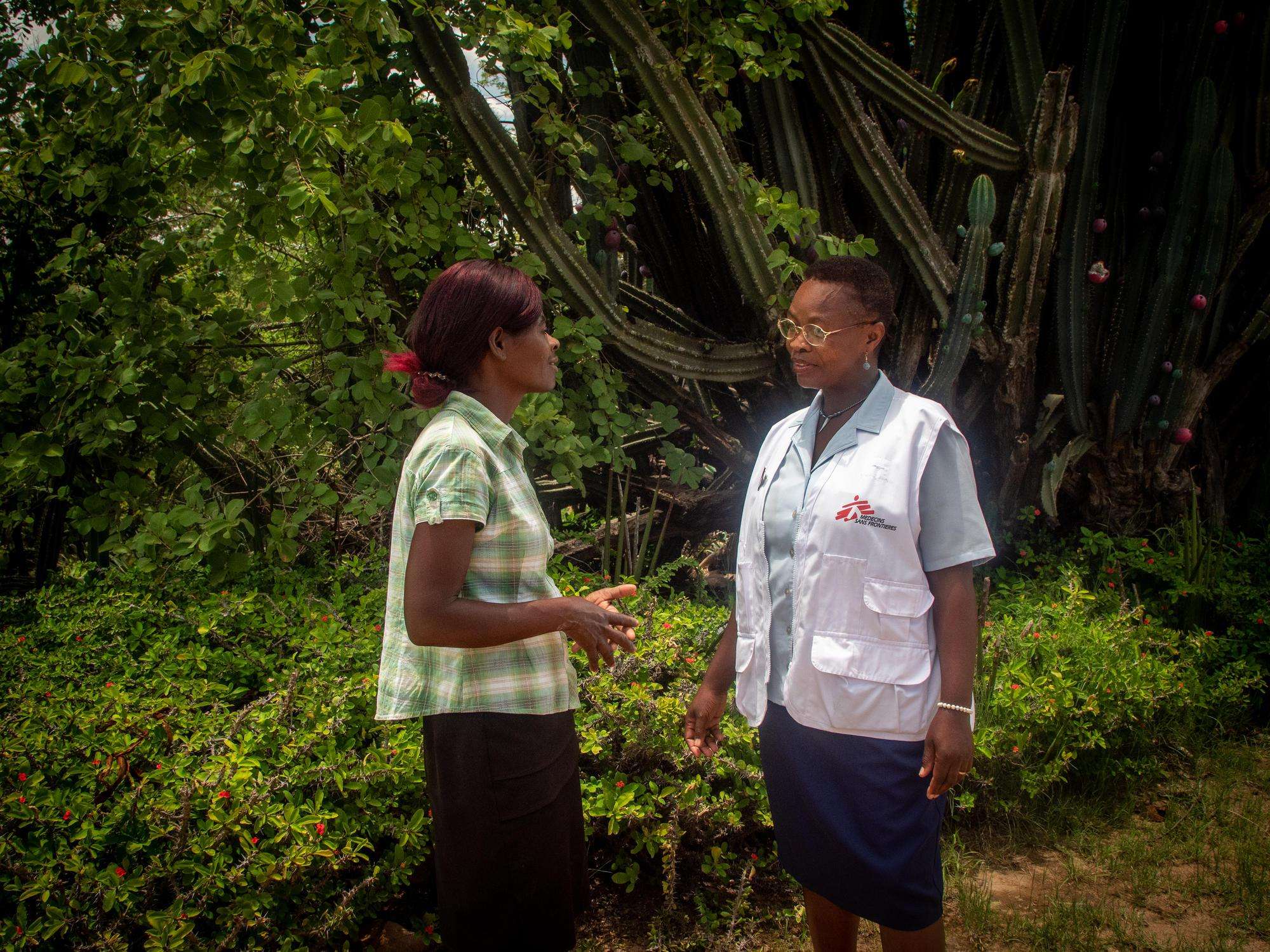Sister Mercy Mandizvo is a nurse mentor working with a cervical cancer prevention and treatment project run by Doctors Without Borders/Médecins Sans Frontières (MSF) in Gutu, Zimbabwe. The country has among the highest rates of cervical cancer in the world, and many women die because they seek care too late. Sister Mercy is passionate about helping women get access to the care they need. MSF supports six rural health centers in Gutu, offering cervical cancer screening and treatment. If staff identify pre-cancerous lesions on a patient's cervix, they can use cryotherapy—a freezing technique—to remove them. Women who need surgical procedures—including, in some cases, a hysterectomy—are referred to one of two district hospitals. "Patients are always afraid because of fear of the unknown," Mandizvo says. "With time, those who have undergone the procedure, when they go to talk to other clients out there, they will be more eager to come in, now with less anxiety."
It's not also easy for someone just to give in, to say: "I'm going to have my uterus removed".
It needs a lot of preparation psychologically, and mentally, and socially, as well as spiritually.
So that is still a very big gap.
My name is Mercy Tsitsidzashe Makaudze-Mandizvo. I am a nurse mentor for MSF.
Médecins Sans Frontières is supporting a cervical cancer screening and treatment project in Gutu.
We started supporting the Ministry of Health and Child Care in these services from 2015.
When we started VIAC (visual inspection of the cervix) services in this one mission hospital, women were coming as far as from distances of 120 kilometers to reach this service.
So we thought of expanding into the rural settings, so that we could go nearer to their homes, so that they can get the services without much hassle.
Text: MSF supports six rural health centers in Gutu.
It is a 'see and treat' procedure. Once a diagnosis has been made, the treatment (cryotherapy) is given then and there. Very small lesions, they are manageable locally.
But my experience with the patients now, patients are always afraid because of fear of the unknown. This procedure will be explained to them but they are humans, they really don't know what will be happening inside of them because this procedure, to them, is invasive.
After undergoing the procedure, most of them would testify that "Oh!" what they are expecting was not what they experienced.
Because when they get in they will be tense but after the short period of the procedure some will ask "Is it done already?" because they will be expecting a more and very painful procedure but then within a short time it will be done.
With time, those who have undergone the procedure, when they go to talk to other clients out there, they will be more eager to come in, now with less anxiety.
Text: In 2019, more than 5,700 women were screened for cervical cancer in MSF's program in Gutu district.
Text: MSF also refers patients to two hospitals in the district for surgical procedures.
Of course, Médecins Sans Frontières does not yet have the ability to do all the treatments. It also needs other players to come in so that we win the game together.




